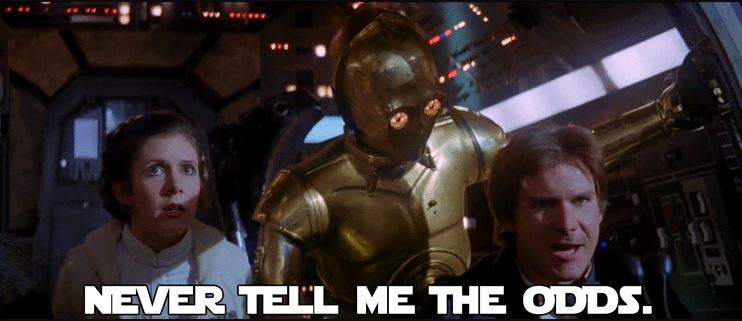The Birthday Paradox
Here’s a quick exercise you can do with your friends and family.
Ask them to think about a group of people. This could be a social media group, the fans of a sports team they follow or a group of people at work or school.
Ask them how many people they think there would have to be in the group that they are thinking about, for it to be more likely than not (i.e., more than a fifty-fifty chance), that two members of the group share the same birthday.
Once you have their answer, tell them that typically, you only need a group of 23 people for there to be more than 50% chance that two of the group members share the same birthday.
You should find that most of the people you ask will find this hard to believe and will have suggested that you need a much higher number than 23 people in a group for this birthday match to occur.
This seemingly seemingly counter-intuitive finding is known as the birthday paradox or the birthday problem and it provides a great way to get people thinking about randomness, probability and chance.
If you and your family and friends would like to learn more the birthday paradox, listen to this excellent and humorous BBC podcast where they discuss the idea of randomness. Start at 15:31 to hear the hosts (and mathematician Alex Bellos) discuss the birthday paradox.
"Most coincidences, if you actually crunch the numbers, become a lot less amazing" (Alex Bellos)
Another quick and easy way to explore the birthday paradox is to access the birth dates of a group of around thirty people in order to see whether any of the dates of birth match. For example, I checked out the cast list of The Walking Dead and discovered that Tom Payne (Jesus) and Steven Yeun (Glenn) both celebrate their birthday on the 21st of December.
What are the odds? A lot more likely than we typically think. Just don't tell Han Solo!
Recent Articles
-
Psychological Impact of Catastrophic Injury & Recovery
Feb 17, 26 02:26 AM
Explore the psychological impact of catastrophic injury, including trauma, identity shifts, resilience, and long-term mental health recovery. -
Psychology Articles by David Webb
Feb 10, 26 06:31 AM
Discover psychology articles by David Webb, featuring science-based insights into why we think, feel, and behave the way we do. -
Music and Memory: How Songs Shape Identity, Emotion, and Life Stories
Feb 10, 26 06:25 AM
How music and memory intertwine to preserve identity, evoke emotion, and anchor life stories. A psychological look at playlists, nostalgia, and the brain.





